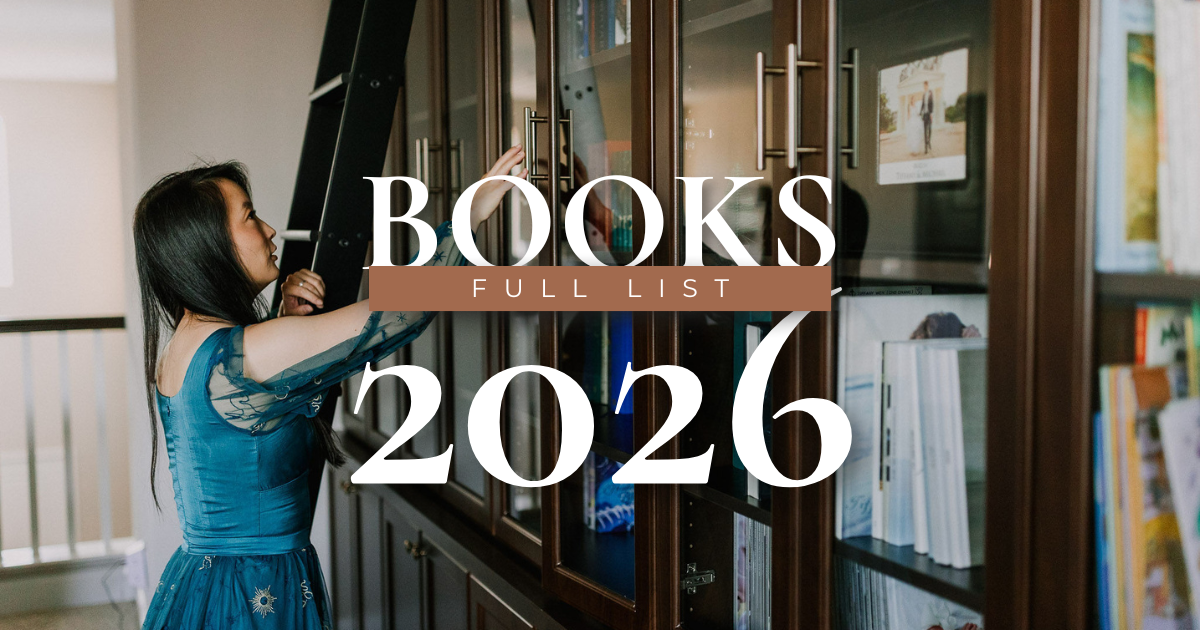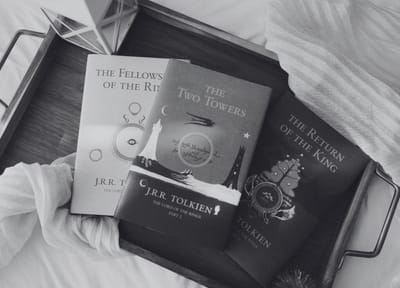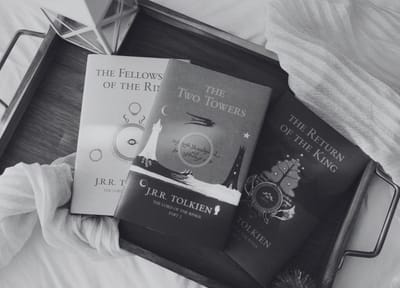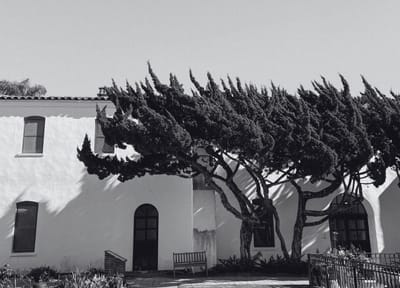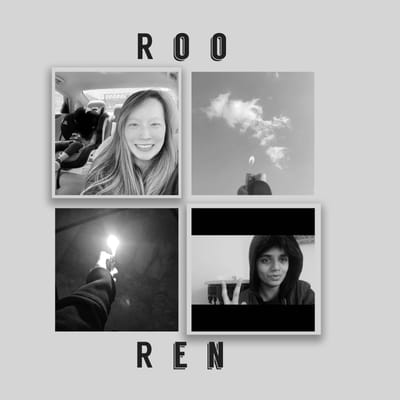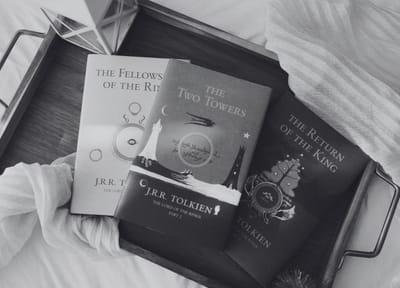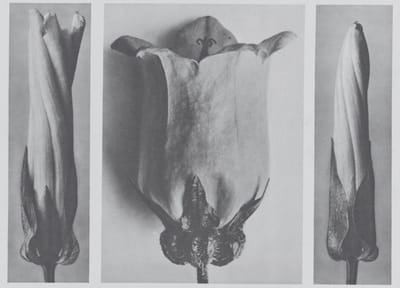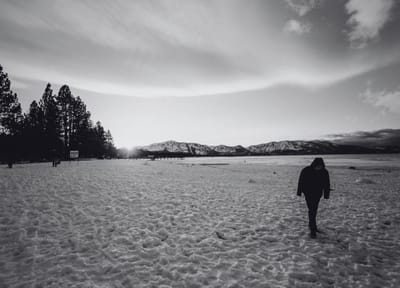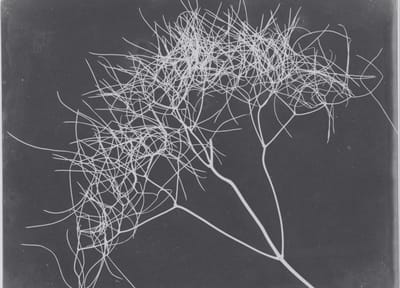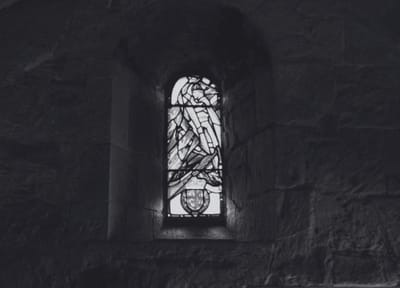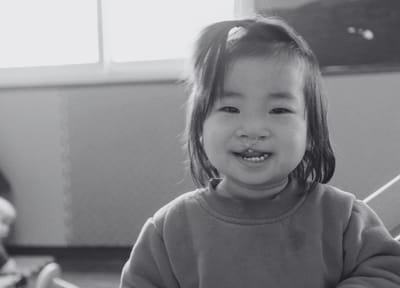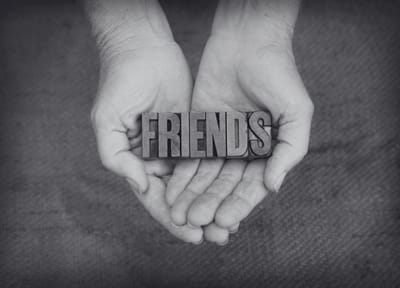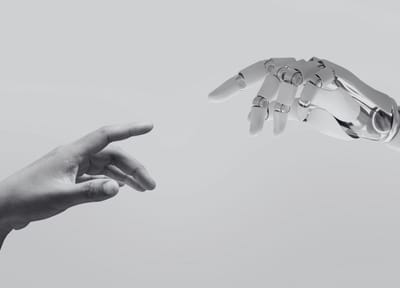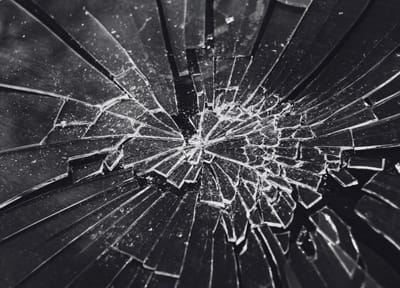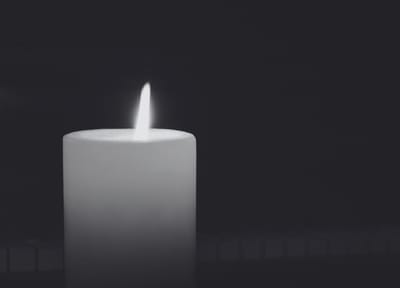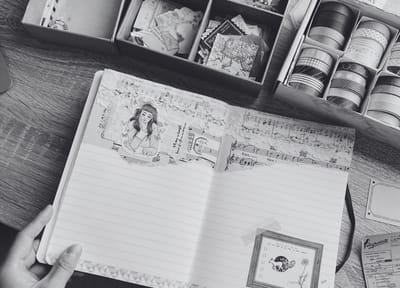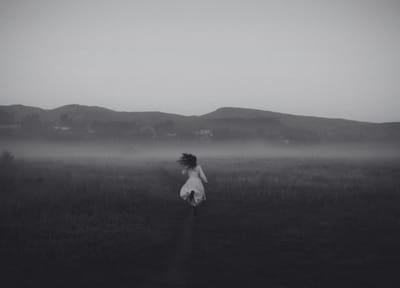Reality Echoes in Tolkien's Legendarium
→
While The Lord of the Rings is an epic fantasy, depicting a life-threatening, world-altering quest, the story within Tolkien’s three books is but one small piece of a much larger history.
A Fellowship Stronger Than Fate
→
Neither of these Hobbits is chosen based on their skill, knowledge, or power, but rather on their fierce loyalty to Frodo. Arguably the most loved Hobbit of all, Samwise Gamgee, is the least impressive.
Tracing Your Shadow through Shifting Leaves
→
“Your father is sick, so we must leave you sometimes,” Mommy says. Grandma cries below the stairs when she thinks I am asleep.
I clutch a photo of them when I miss them, and I pray God would spare him, that we might share in more, all the seasons of life together.
I didn't want to be an author
→
I write not just for the boy taken too early from this world, but for the little girl who grew up too scared to speak her truth.
I write because I now know stories can light up the Shadow and save a life—two lives.
But one is enough.
Lord of the Rings Reading Challenge
→
Why Should You Read The Lord of the Rings?
Contrary to popular belief, this book is not a simple story of good defeating evil and everyone living happily ever after. There is so much nuance and layering that even after sixteen years of reading it, I find something fresh and relevant with each read.
Roots and Wings
→
I am a mess of contradictions.
In the end, those jagged edges may never fit together into a perfect, cohesive whole. But really, who wants that anyway?
Birthmarks and Breakdowns: A Raw Look at Maternal Anxiety
→
My therapist says I have a severe case of catastrophic thinking. Well, I could have told you that. At any minor setback, my brain somehow determines it’s the literal end of the world, and I start jumping through the mental hoops of how I’m going to cope with it.
Enmeshed but Alone
→
Even in collectivistic societies where families and friends live much more intertwined lives, loneliness is still prevalent.
Home in the spaces between
→
I kept wanting something the world showed me I couldn't have. I wanted someone who'd look at my scars and not look away but call me beautiful. I wanted someone to loosen the knots around my thoughts and know what sort of tapestry they made. I wanted someone to call my own.
What They Don't Tell You About the Third Year After Losing Someone
→
What they don’t tell you about the third year after loss:
In some ways, it’s harder than the first, maybe even the second.
When the Orphan Crisis Has a Name
→
On that day, we saw the number, and the number became a person, and I realised: she is one of the 153 million orphans.
Not Everyone Should Foster or Adopt a Child
→
May is National Foster Care Month in the U.S. I’m not going to give you numbers of how many children are in foster care or how many of them will suffer lifelong impediments as a result of their traumatic childhoods.
Instead, I’m going to share stories.
Platonic Soulmates: What Happened to Our Friendships?
→
Many cultural critics argue that the art of friendship is in decline. The United States surgeon general has named loneliness an epidemic. People are lonelier than ever, and they don’t know what to do about it. Why is that?
In the Absence of a Lost Love, Will an Echo Do?
→
In 2013, Black Mirror released an episode in which a widow utilises technology allowing her to communicate with an AI imitation of her late husband, called Be Right Back. Eleven years since then, we now face a very real possibility of this technology coming to fruition.
Fractured Perspectives on Loss
→
Your death became the lens through which I viewed the world: cruel and meaningless.
Grief is an invisible threshold. Once you cross over, there's no returning to who you were before.
Christmas For Those Who Grieve
→
Christmas is not always a joyous time for everyone, particularly for those of us who are grieving.
I write this letter for you.
I reflect on the way holidays make feelings of grief more acute, and how my family honours those we’ve lost in this time when others seem focused on celebrating.
Ways I Am Simplifying My Life in 2024
→
Though I’m a workaholic, juggling so many balls while living with chronic illness has meant learning to quiet my perfectionism and be okay with letting some things go.
Advent, Fog, and Beauty in the Unknown
→
I don’t know if I noticed the simple beauty of witnessing the first light of day at the time. The fog of grief still shrouded every corner of my mind. This trip was just another attempt to keep it from pulling me under.
I ran toward the rising of the sun.
